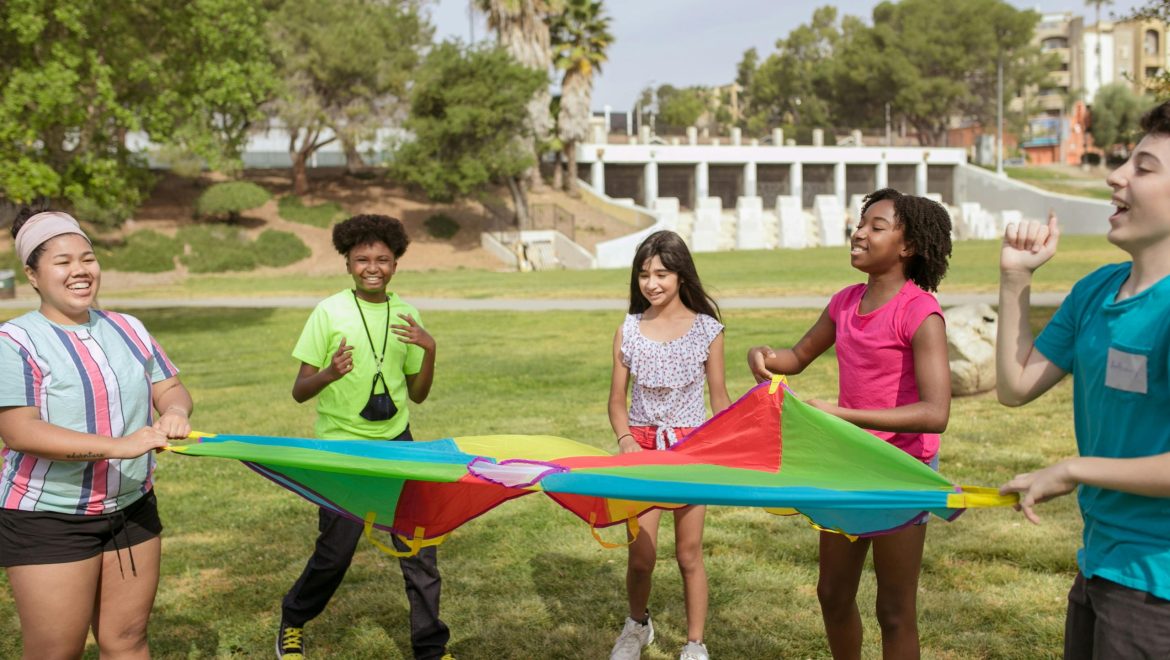Play is much more than just fun for young children—it’s how they learn about the world, develop essential skills, and build a foundation for lifelong learning. Through play, children enhance their cognitive, social, emotional, and physical development in ways that are natural and enjoyable. As a parent, understanding the value of play can help you foster an environment that supports your child’s growth.
Here’s why play is crucial to early childhood learning and how you can encourage meaningful play experiences for your child.
Play Enhances Cognitive Development
Play stimulates children’s thinking, problem-solving, and creativity, helping them understand how the world works.
- Problem-Solving: Activities like puzzles, building with blocks, or sorting objects help children think critically and find solutions to challenges.
- Imagination and Creativity: Imaginative play—whether pretending to be a superhero or running a pretend store—lets children invent scenarios and explore roles, enhancing their creativity.
- Cause and Effect: Through play, children experiment with actions and observe outcomes, such as learning that stacking too many blocks will cause them to topple.
Play Supports Physical Development
Physical play helps children strengthen both their fine and gross motor skills, which are vital for overall development.
- Gross Motor Skills: Activities like running, climbing, or throwing help build coordination, balance, and strength.
- Fine Motor Skills: Precise tasks like drawing, building with small toys, or using utensils improve hand-eye coordination and dexterity, preparing children for skills like writing.
- Physical Health: Outdoor and active play promotes healthy habits, keeps children moving, and helps burn energy.
Play Fosters Social and Emotional Development
Play provides a natural way for children to develop social skills, build relationships, and understand emotions.
- Cooperation and Sharing: Group play teaches children how to work together, share, and take turns, essential skills for social interaction.
- Understanding Emotions: Through role play, children explore emotions and learn to express their feelings, while also practicing empathy by pretending to be different characters.
- Building Confidence: Play gives children a sense of accomplishment. Solving a puzzle, building a tower, or winning a game boosts their self-esteem and confidence.
Play Encourages Language and Communication Skills
Play is a fantastic way for children to practice language, learn new vocabulary, and improve their communication abilities.
- Learning New Words: During play, children naturally encounter new words and phrases, expanding their vocabulary and language comprehension.
- Storytelling: Imaginative play encourages storytelling and role play, helping children build narrative skills and express their ideas.
- Conversation Skills: Group play teaches children how to take turns in conversation, listen to others, and practice effective communication.
Play Stimulates Emotional Regulation and Resilience
Through play, children learn to manage their emotions, cope with challenges, and develop resilience.
- Managing Frustration: Whether it’s fitting a puzzle piece or losing a game, play teaches children how to handle disappointment and persevere through challenges.
- Exploring Emotions: Role-playing allows children to process and express their emotions in a safe, imaginative space.
- Building Resilience: By overcoming setbacks in play, children develop the confidence and persistence they’ll need to face challenges in life.
Play Promotes a Love of Learning
Play makes learning fun, fostering curiosity and a passion for discovery that can last a lifetime.
- Curiosity and Exploration: Through play, children naturally explore new ideas, ask questions, and experiment with solutions, fuelling their curiosity and love of learning.
- Hands-On Learning: Activities like counting blocks, measuring in pretend cooking, or observing nature help children understand abstract concepts in a fun, hands-on way.
- Learning Without Pressure: Play provides a relaxed, pressure-free environment where children can learn through trial and error, fostering intrinsic motivation and a positive attitude toward learning.
How Parents Can Encourage Learning Through Play
As a parent, you play a key role in fostering your child’s learning through play. Here are some tips to make playtime an enriching experience:
- Provide Open-Ended Toys: Offer toys that encourage creativity, such as building blocks, art supplies, or pretend play sets. These toys allow children to engage in imaginative and problem-solving activities.
- Follow Your Child’s Lead: Let your child take the lead in deciding how they want to play. This empowers them to explore their interests, boosting confidence and independence.
- Join in the Fun: While independent play is important, playing together can strengthen your bond and support their social and emotional development.
- Encourage Outdoor Play: Outdoor environments offer new opportunities for exploration, physical activity, and imaginative play. Take your child to the park, explore nature, or simply spend time in the garden.
- Promote Problem-Solving: When your child encounters challenges during play, encourage them to think critically and come up with their own solutions instead of stepping in immediately.
Summary
Play is a vital part of early childhood learning, providing children with the opportunity to develop cognitive, social, emotional, and physical skills in an enjoyable way. By creating a playful learning environment, offering open-ended toys, and participating in their adventures, you can help your child build the skills they need to thrive. Remember, play isn’t just fun—it’s the key to how young children make sense of the world and grow into confident, resilient learners.


Add Comment
Upcoming Events